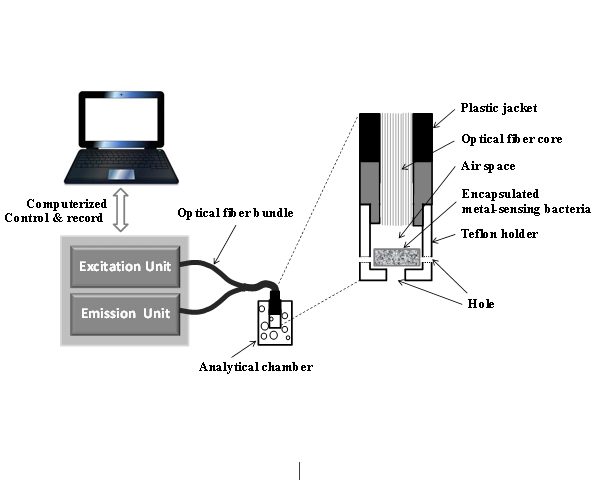Everyday life is close to the risk of heavy metals, because they are frequently contaminated in environment and food chain. Early monitoring of metal contamination is effective prevention process. Therefore, cell- and protein-based metal sensor has been developed to overcome the limitations of sophisticated, expensive and non-portable instruments. Bacteria and protein have been designed and constructed to specifically bind with metal ions and to change its fluorescent activity corresponding with metal concentration. The sensor has been able to quantitate copper solution down to 5 µM. As a result of its sensitivity, cost effectiveness and real time monitoring properties, bacteria- and protein-based metal sensor is a potential tool for early monitoring of metal contamination.

Microsporidian Enterocytozoon hepatopenaei
January 18, 2017
Unpolished Thai Rice Prevent Colorectal Cancer
January 30, 2017Bacteria- and Protein-based for Metal Ions Sensor

Provider : Asst.Prof.Dr.Tanawut Tantimongcolwat and colleagues: Faculty of Medical Technology


